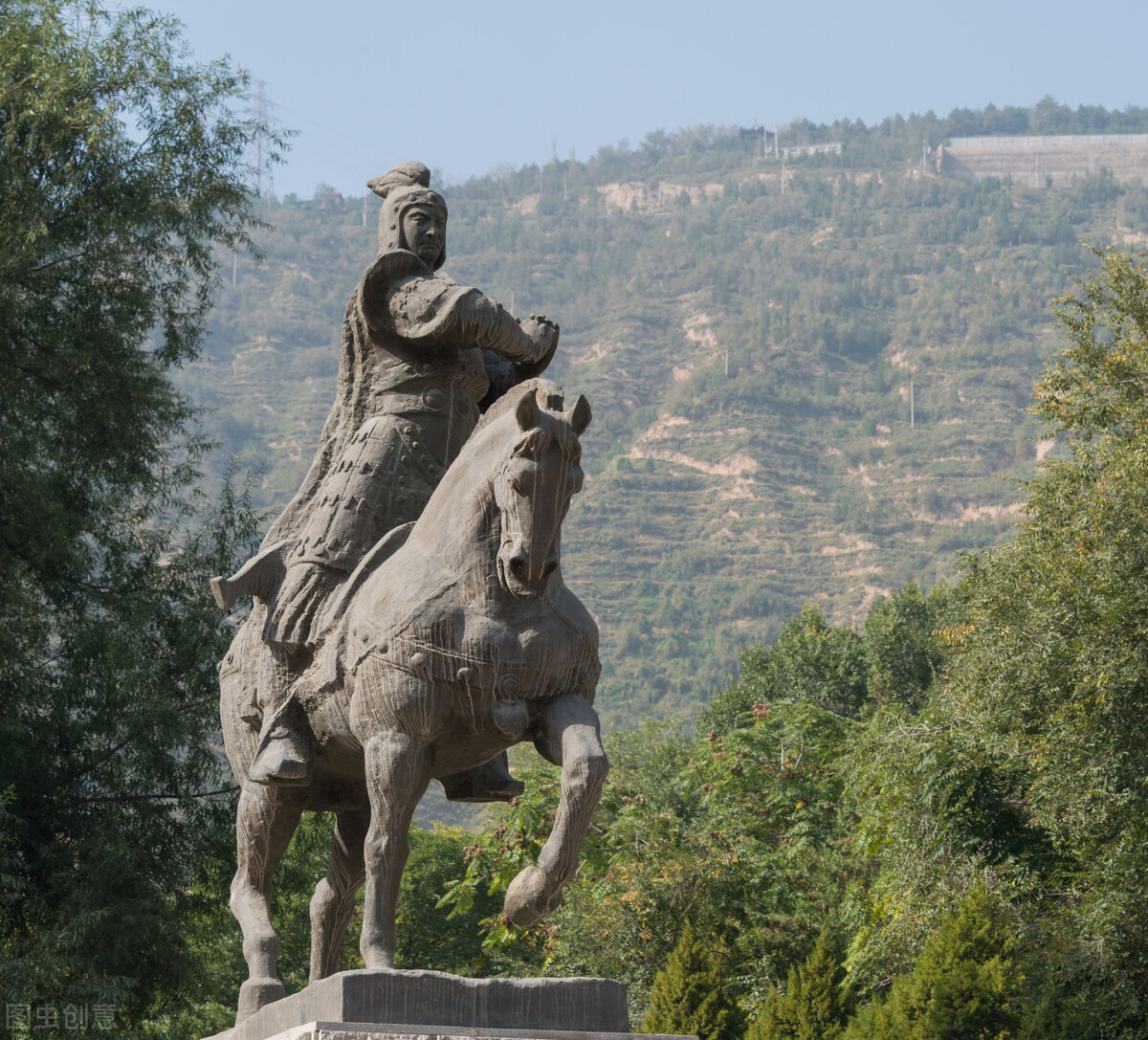Since ancient times, many national heroes with iron bones and dying in anger have made meritorious achievements with heroic spirit and left immortal heroic names. The famous Han Dynasty general Huo Zhiyi (140-117 BC) "chased the wind and ran to the battlefield with thunder", sprinkled the spirit and blood genes of martial virtue on the land of Shenzhou more than 2,000 years ago, and became a young hero in China's history who "sacrificed his body to go to the country and regarded death as a sudden return".
Heroes from ancient times out of youth. Huo Went ill for the first time to follow the general Wei Qing on the expedition, only 17 years old, but he dared to lead eight hundred light horses to rush to the enemy camp, with lightning speed and concealment, "beheading and capturing 2,28 levels, and Xiang Guo, Danghu, beheading the eldest father's line Ruo Hou, and giving birth to the ji father Luo Gubi." This battle became famous and was named "Champion Hou" by Emperor Wu of Han.

Ho go sick statue
In the many subsequent battles, Huo Went ill and his uncle Wei Qing joined hands, led the army to conquer and suppress the Xiongnu four times in just five years, attacked the camp and pulled down the village, cut down the flag, and each time he destroyed the class division with a big victory, destroyed the enemy by 110,000, surrendered the enemy for 40,000, and became a firm practitioner of "those who offend our strong Men will be punished from afar". To this end, the Xiongnu called the subjects far away for a long period of time, "there is no royal court in the south of the desert", making the Western Han Dynasty like a day in the sky. "The moon hangs in the middle of the sky, making the night lonely." The number of sorrows moved, and the brave men were not proud. Borrowing to ask the general who it was, I was afraid it was Huo Xiaoyao. This is a poem by the poet Du Fu's "After the Plug", which depicts and shows the heroic scene of the conquest of "Huo Biaoyao" at that time.
In the spring of 121 BC, Emperor Wu of Han appointed the 19-year-old Huo Fuyi as a general on horseback, leading 10,000 horsemen to attack the Xiongnu from Longxi (present-day Lintao County, Gansu Province). Huo Junchang drove straight in, like a bamboo, and marched forward in a high song, "Over the Wu Xuan, ask for Repair Pu, involve fox slaves, go through the Five Kingdoms, and hope to win Shan Yuzi." On the sixth day of the battle, after crossing the Yanzhi Mountain for more than a thousand miles, he joined the short soldiers, killed the King of Lan, beheaded the Marquis of Lu, held the evil prince and Xiangguo, the capital lieutenant, the Jieshou prisoner 8,960 levels, and collected and slaughtered the Tianjin people." After this battle, five tribes west of the Lianke River raced eastward along the Yanzhi Mountains (southeast of present-day Shandan County, Gansu) for more than 1,000 miles to Gaolan Mountain (present-day south of Lanzhou City, Gansu), opening up the Silk Road. Later generations praised: "Yao Li Daxun, the most demonic atmosphere in ten thousand miles." (Song Yuzhao, "Sai Shang Gift wang taiwei").
In 119 BC, Emperor Wu of the Han Dynasty sent Huo Fuyi and Wei Qing to lead 50,000 cavalry each, and marched north of the desert in two directions. Huo Wentai led his army out of Dai County and Right Beiping in the north, gave full play to the maneuverability and flexibility of the cavalry, launched a thrilling death-defying decisive battle with the powerful cavalry group of King Zuoxian, and chased him to the Wolf Juxu Mountain with victory, and held a grand ceremony to sacrifice heaven and earth, which became the highest glory of the battle achievements of the soldiers of all generations and the lifelong struggle of the soldiers. Later generations praised the poem: "The iron horse of Jinge is like a rainbow, and the 100,000 Xiongnu are swept away." The most powerful is to spread the world, and the flag of the wolf is red. From then on, the Xiongnu were seriously injured and unable to confront the Han Dynasty anymore, and the military threat on the northern frontier was basically lifted, so they were crowned by Emperor Wu of the Han Dynasty as the Great General Sima Da. He was 21 years old.
However, two years later, in 117 BC, Huo Died young at the age of 23. Huo's tomb still stands next to Maoling, and in front of the tomb is a stone statue in the shape of a "Horse Ta Xiongnu", which represents his great military achievements for the country.
The young hero Huo went ill, and in the limited years, he shone like the sun in the thousand-year history of China.
Huo went to the sick tomb